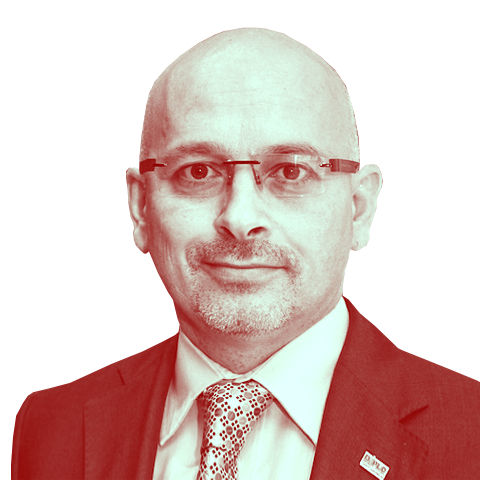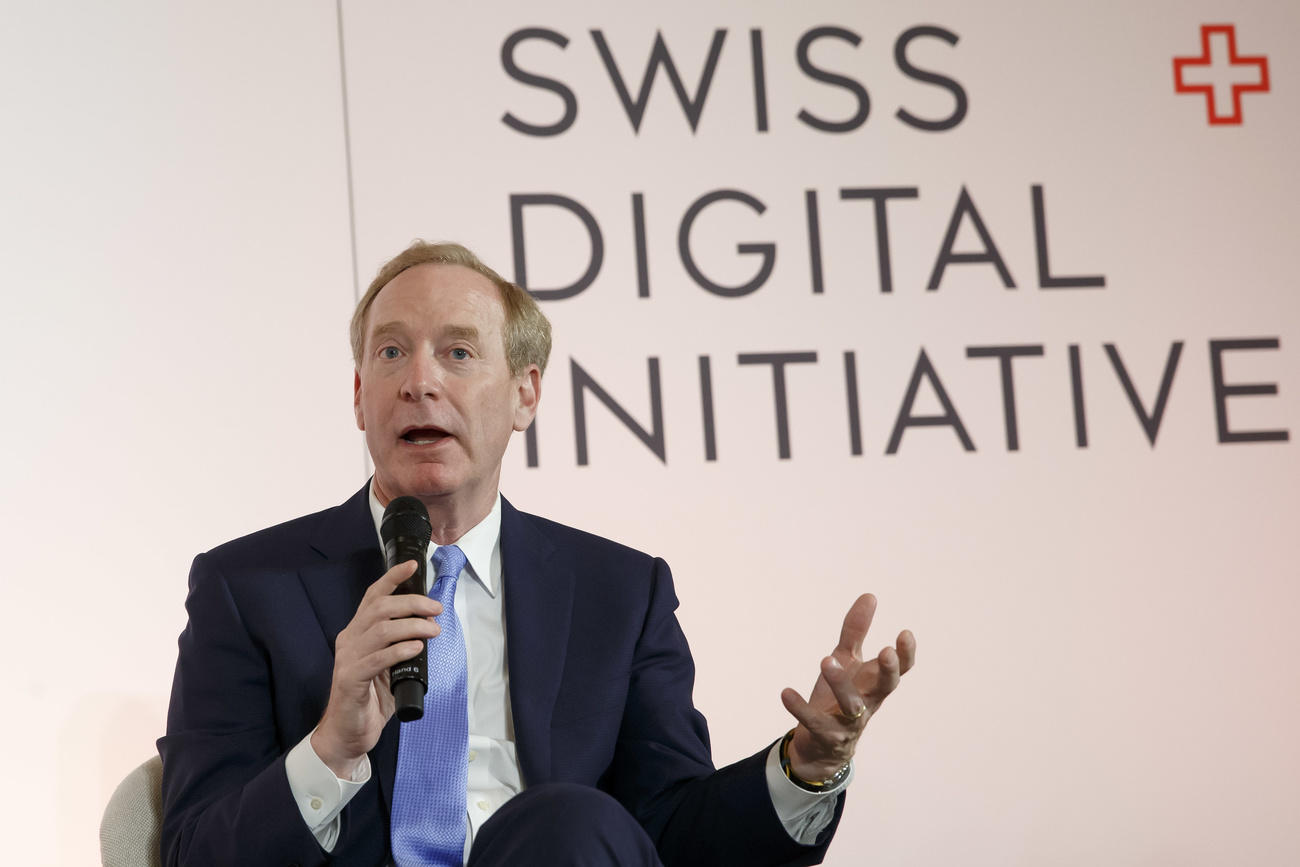Humanity needs a digital home
Seventy five years ago, humanity created the United Nations in order to safeguard peace, promote human rights, and enable development. Given the challenges of that time, it was a necessary step toward a more stable and secure world.
Today, we are faced with new issues that the drafters and signatories of the UN Charter could have hardly foreseen. The digital age has ushered a seismic shift among traditional challenges and created entirely new ones ranging from cybersecurity and online privacy to artificial intelligence (AI) governance. In order to address them, humanity needs a digital home – a space where countries, citizens, and companies can work together to tackle policy issues and ensure that technology remains at the service of humanity.
The layout of this digital home is sketched out in the Report ‘Age of Digital InterdependenceExternal link’, prepared by the UN High-level Panel on Digital CooperationExternal link and operationalised by the UN Secretary-General’s Roadmap for Digital CooperationExternal link. Its underlying design is the upgraded Internet Governance Forum (IGF)External link, which provides the following building blocks: a leadership track, cooperation accelerator, policy incubator, help desk, and policy observatory. The UN Secretary-General holds the ‘building permit’ for the construction of a digital home as per Article 72 of the Tunis Agenda of the World Summit on Information Society (2005), giving him a broad mandate to arrange the IGF.
If we think of the digital home as a building, what elements would we be sure to put in the blueprint? How do we arrange the outdoor space? In other words, what should the design of humanity’s digital home be?
First and foremost, for this digital home to be truly a home for all of humanity, the doors must be wide open for those who impact or are impacted by digital developments and issues. In addition to the ‘usual suspects’ – governments, companies, and civil society – it should also involve youth, entrepreneurs, religious communities, and emerging actors such as online gamers and social media influencers.
While many global fora claim to be open to all actors, in reality, most cannot participate meaningfully. It is often impossible for smaller actors, particularly small and developing countries, to have the capacity to follow hundreds of complex policy issues and processes such as standardisation, cybersecurity, data, and AI. It is not enough to have open doors; it is important to actively welcome guests. Meaningful inclusivity is already gaining momentum at the UN where, for example, traditionally closed cybersecurity discussions are becoming more open and inclusive as illustrated by the current deliberation on cyber-norms at the UN Open-Ended Working Group (OWEG)External link.
Second, the windows of the digital home should be open for transparency and accountability, or perhaps, going a step further, it should be a glass house built in the style of Philip Johnson. Bureaucratic language and arcane tech speak must therefore be translated into simple messages on how digital policies will affect the way we live and work. Inevitable trade-offs such as those between security and privacy will also need to be carefully and coherently explained. Media will play a crucial role in reducing the disconnect between tech circles and the public.
Third, open doors and windows alone are not enough. The digital home needs to be a shared space – built by all and for all. Therefore, to live up to its name, it should be built on open digital platforms. For example, online meeting platforms should be open source, free, secure, multilingual, and fully accessible to all actors – especially for those from regions that do not have stable Internet access. Just as globally renowned architects Niemeyer and Le Corbusier designed the UN headquarters in New York with many countries contributing stones, glass, and furniture during its construction, the same should happen with online meeting platforms by involving tech companies such as Zoom, Microsoft, and Tencent, as well as software developers and designers worldwide. Online meeting platforms should become digital public goods developed, used, and shared by all of humanity. Data and recordings of meetings in the digital home should enjoy special immunity protection as is the case with proceedings on physical UN premises. Efforts to build such an open source platform have already started in Geneva by the ‘Meet 2030’ initiative that involves international organisations, tech developers, and academic communities.
Fourth, a digital home should have a greenhouse where new digital policies can be grown in an evidence-based, multi-stakeholder, and transparent manner. The policies that come out of this process should be offered to companies, governments, and international organisations for adoption and implementation, helping them bypass often costly and time-consuming policy development processes.
Fifth, a digital home should have a diverse and rich library that nurtures a multidisciplinary approach across a wide range of policy and professional fields in order to ensure that all viewpoints are addressed and all opportunities maximised. For example, data privacy or AI cannot just be effectively addressed from a tech perspective, but must also be tackled from economic, human rights, security, and legal standpoints, to name a few. A special section of this library should be dedicated to digital public goods, open source applications, shared data, and common AI developments.
Sixth, the digital home should have a workshop in which capacities can be built and best practices shared. Various stakeholders need to be supported to fully benefit from digitalisation. In particular, small and developing countries cannot be left behind. Their participation in the digital home needs to go hand in hand with their empowerment to develop relevant policies reflecting their specific social and cultural contexts.
Finally, a digital home should have a fireplace around which actors can anticipate the impact of emerging technologies ranging from AI to quantum computing. This would be a space for brainstorming solutions to emerging problems, with a particular focus on the digital developments and rights of future generations.
Some semblances of a digital home have started to emerge as the world addresses digital policy issues and uses online platforms more intensively. Cybersecurity, e-commerce, data protection, and AI are climbing the policy agenda and in parallel, many diplomatic activities are shifting online, as was the case with the 75th UN General Assembly. To connect all these dots, more cooperation is necessary. The UN was created to facilitate international cooperation in the face of monumental challenges to peace, human rights, and development. Seventy five years later, the world is in a similar spot, as a wide range of digital issues coalesce and present unforeseen challenges to both humanity and society that transcend international borders. We need a digital home that fosters digital cooperation across national, organisational, and professional frontiers. The 75th anniversary of the UN is the right time to lay the foundation for a digital home that we need, and that future generations will be proud of.
Professor Jovan Kurbalija is the former executive director of the Secretariat of the UN High-level Panel on Digital Cooperation. Currently, he is the director of DiploFoundation External linkand head of the Geneva Internet PlatformExternal link.
The views expressed in this article are solely those of the author. They do not necessarily reflect the views of swissinfo.ch.
Opinion series
swissinfo.ch publishes op-ed articles by contributors writing on a wide range of topics – Swiss issues or those that impact Switzerland. The selection of articles presents a diversity of opinions designed to enrich the debate on the issues discussed.

In compliance with the JTI standards
More: SWI swissinfo.ch certified by the Journalism Trust Initiative













You can find an overview of ongoing debates with our journalists here . Please join us!
If you want to start a conversation about a topic raised in this article or want to report factual errors, email us at english@swissinfo.ch.